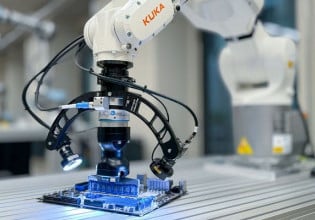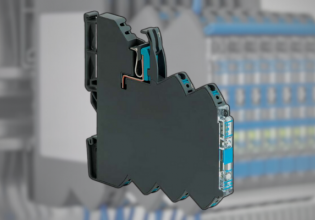D
OK - I got a response today from Richard Stallman concerning the GNU license as it would apply to the LinuxPLC project.
The original text is below, but, summed up here is the answer - no problem. As long as they are excuting something like a bytecode or interpreted
program, GPL does not affect the program they write.
The quick thing to note - RMS admonished me about the usage of Linux instead of GNU/Linux. <GRIN> *SIGH* I hate that... And I did email him back to explain what a PLC was.
-----------------------------
> I am a somewhat member of the LinuxPLC project, which is dedicated to
> developing an alternative to closed-source style development PLC
projects.
Could you tell me what PLC is? Also, what does this program have with
Linux? Perhaps you're talking about the GNU/Linux system, and calling
it "Linux"; many people do that, but it would really help the GNU
Project if you would call it "GNU/Linux" instead. See
http://www.gnu.org/gnu/linux-and-gnu.html for more explanation.
> The important question is - if
> the Logic Solver for LinuxPLC is GPL'ed, is the programs (bytecode)
written
> to run on top of the LinuxPLC's Logic Solver automatically GPL'ed?
No. For an interpreter, the user's program is its data; it is not an
extension of the interpreter. (You can easily make it completely
clear that this is your view of the license, by including a statement
about this in the README for your program.)
Thus, programs designed to be run as bytecode on your interpreter do
not have to be free software, if they are distributed separately from
your interpreter.
However, if the program and the interpreter are linked together in a
combined executable, that combination has to be free. So in that
case, the program would have to be free.
If you want to change that, I can advise you of how to do so.
-------------
Davis Ray Sickmon, Jr
http://www.midnightryder.com
_______________________________________________
LinuxPLC mailing list
[email protected]
http://linuxplc.org/mailman/listinfo/linuxplc
The original text is below, but, summed up here is the answer - no problem. As long as they are excuting something like a bytecode or interpreted
program, GPL does not affect the program they write.
The quick thing to note - RMS admonished me about the usage of Linux instead of GNU/Linux. <GRIN> *SIGH* I hate that... And I did email him back to explain what a PLC was.
-----------------------------
> I am a somewhat member of the LinuxPLC project, which is dedicated to
> developing an alternative to closed-source style development PLC
projects.
Could you tell me what PLC is? Also, what does this program have with
Linux? Perhaps you're talking about the GNU/Linux system, and calling
it "Linux"; many people do that, but it would really help the GNU
Project if you would call it "GNU/Linux" instead. See
http://www.gnu.org/gnu/linux-and-gnu.html for more explanation.
> The important question is - if
> the Logic Solver for LinuxPLC is GPL'ed, is the programs (bytecode)
written
> to run on top of the LinuxPLC's Logic Solver automatically GPL'ed?
No. For an interpreter, the user's program is its data; it is not an
extension of the interpreter. (You can easily make it completely
clear that this is your view of the license, by including a statement
about this in the README for your program.)
Thus, programs designed to be run as bytecode on your interpreter do
not have to be free software, if they are distributed separately from
your interpreter.
However, if the program and the interpreter are linked together in a
combined executable, that combination has to be free. So in that
case, the program would have to be free.
If you want to change that, I can advise you of how to do so.
-------------
Davis Ray Sickmon, Jr
http://www.midnightryder.com
_______________________________________________
LinuxPLC mailing list
[email protected]
http://linuxplc.org/mailman/listinfo/linuxplc






